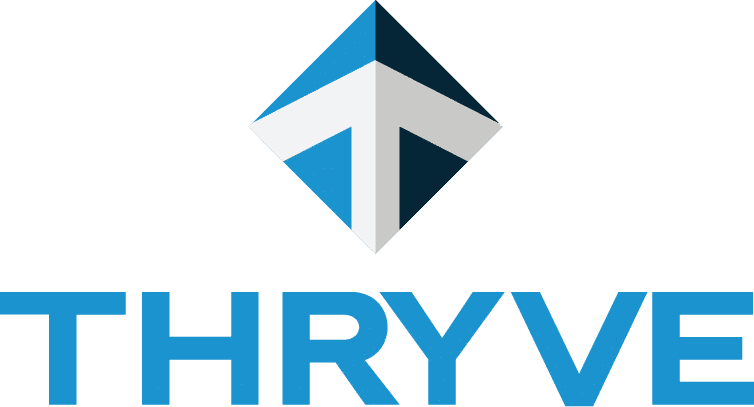Managing finances as a small business owner can feel like walking a tightrope. You need to make smart decisions that can propel growth while keeping a sharp eye on cash flow, profitability, and forecasting. But not every business can afford a full-time Chief Financial Officer (CFO) to oversee these critical tasks.
Enter the fractional CFO. If you’ve come across this term and wondered what it truly means (and how it could benefit your business), you’re in the right place. This guide will unpack what a fractional CFO is, how they operate, and why they might be the missing piece to your business’s financial success.
What Is a Fractional CFO?
A fractional Chief Financial Officer (CFO) is an experienced financial expert who provides high-level financial strategy, planning, and oversight to businesses. What makes them fractional is that they dedicate a portion of their time to assist multiple businesses.
Unlike traditional CFOs who are full-time salaried employees, fractional CFOs are a flexible and cost-effective solution for businesses that may not need or cannot afford full-time financial leadership. They bring a wealth of expertise and strategic insight but for a “fraction” of the commitment.
Need Clarity on Your Financial Direction?
Why Would a Small Business Need a Fractional CFO?
Balancing day-to-day operations, growth strategies, and financial responsibilities can be overwhelming for small business owners. A fractional CFO helps bridge the financial knowledge gap and ensures that critical decisions are driven by data and analysis rather than guesswork.
Here’s why your business might benefit from their expertise:
1. Financial Analysis
A fractional CFO helps to tell the story behind the business’ numbers to generate actionable insights and move the business forward.
2. Strategic Financial Planning
A fractional CFO develops financial strategies tailored to your business’s goals, whether that’s maximizing profitability, scaling operations, or raising capital.
3. Cash Flow Management
Cash flow issues are a leading cause of business failures. A fractional CFO analyzes incoming and outgoing funds to ensure you have the liquidity needed to meet obligations, seize opportunities, and avoid crises.
4. Forecasting and Budgeting
Fractional CFOs can build detailed budgets and financial forecasts, helping you anticipate future expenses, revenues, and potential obstacles. Accurate projections are essential for informed decision-making.
5. Fundraising Support
Whether you’re seeking investors, applying for loans, or planning new funding rounds, a fractional CFO can prepare financial documents and business projections to attract the right partners.
6. Interim Expertise While Scaling
Growing startups and small businesses often need CFO-level input without the overhead cost of a full-time hire. A fractional CFO provides expertise during higher risk transitional periods for the business like launching new products or entering new markets.
How Does a Fractional CFO Work?
Working with a fractional CFO is both flexible and straightforward. Here’s how it typically works:
Customized Engagements
The Thryve fractional CFO service has a core group of features needed by all small businesses. The business can add additional features and support based on individual needs.
Remote-Friendly Support
Many fractional CFOs utilize cloud-based tools to access real-time financial data of the business, making their services seamless and efficient.
Specialized Projects or Ongoing Needs
You can also engage fractional CFOs for one-off projects, such as preparing for a funding round, or retain them for ongoing needs like monthly financial reporting and analysis.
How to Know If Your Business Needs a Fractional CFO
Wondering if a fractional CFO is right for your business? While this role can greatly benefit many companies, here are some signs it might be time to bring one on board:
- Your business is scaling, but your financial and accounting processes aren’t keeping up.
- You don’t understand your business’ story behind the numbers.
- You’re unsure how to improve profitability despite strong sales.
- You need strategic guidance for bank or investor relations.
- You’re spending too much time on financials, pulling you away from core operations.
- You lack expertise in preparing detailed budgets, forecasts, or financial plans.
Ready to Strengthen Your Small Business Finances?
Fractional CFO vs. Bookkeeper or Accountant
It’s important to distinguish the role of a fractional CFO from other financial professionals.
Bookkeeper
Handles day-to-day transaction recording, payroll processing, and basic financial reports.
Accountant
Focuses on tax planning, compliance, and managing financial records.
Fractional CFO
Provides high-level strategic financial insights, builds forecasts, manages cash flow, and helps with big decisions like raising capital or expanding operations.
While bookkeepers and accountants are crucial for keeping financial records in order, fractional CFOs take a step back and look at the bigger picture, ensuring your business is headed in the right direction financially.
Final Thoughts
Running a small business is challenging, but you don’t have to do it alone. A fractional CFO provides the expertise your business needs to grow, without the cost or commitment of a full-time hire.
By taking charge of strategic financial planning, forecasting, and cash flow management, a fractional CFO empowers you to make smarter, data-driven decisions.
If your business could use expert guidance to overcome financial hurdles or plan for sustainable growth, consider exploring how a Thryve fractional CFO could fit into your operations.
